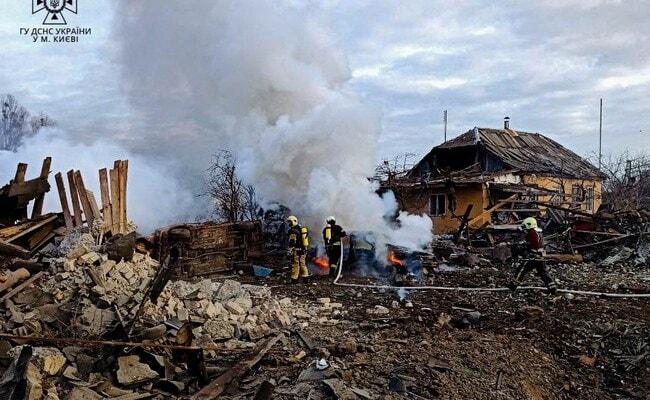Ukrainian minister said that it would still need continued deliveries from its allies to sustain effort.
Kyiv:
Ukraine has enough weapons to begin its counter-offensive against Russia, and the operation will give the country the victory it needs to join NATO, Foreign Minister Dmytro Kuleba told Reuters on Monday.
Membership of the military alliance would “probably” only be possible for Ukraine after the end of active hostilities, Kuleba said in an interview in Kyiv.
Ukraine has for months feted a vast upcoming assault to retake the 18% of its territory still occupied by Russia, using tanks, armoured cars and artillery donated by its Western allies.
Ukraine’s deputy defence minister said on Monday Kyiv was shifting to “offensive operations” on certain fronts but dismissed an earlier claim from Moscow that a major Ukrainian assault had taken place.
Kuleba did not say whether the counter-offensive had started when asked. He answered that the most important thing was not when it started, but that it ended in Ukrainian victory.
The minister, who has served in his post since March 2020, said NATO membership was the next big target on Ukraine’s agenda after some of its allies agreed to train Ukrainian pilots on the F-16 fighter jets coveted and lobbied for by Kyiv.
“We (already) unlocked all weapons…. There is nothing big left to fight for.”
“NATO membership cannot stop this war, but NATO membership will stop further wars. This is why the best way to ensure security in the region is to come to the moment when Ukraine becomes a member of NATO,” he said.
Moscow said in the early hours of Monday that it had thwarted a major Ukrainian offensive involving six mechanised and two tank battalions in the southern part of Ukraine’s Donetsk region.
Kyiv officials mocked that claim, with Deputy Defence Minister Hanna Maliar saying the claim was intended to distract from Russian defeats near the eastern city of Bakhmut.
Kuleba said that while Ukraine now had enough arms to begin its counter-offensive, it would still need continued deliveries from its allies to sustain the effort.
“When you go on the counter-offensive, it’s one thing to have enough weapons to begin it, but another thing to ensure sustainability of supplies in order to be able to continue as long as is needed.”
Kuleba said he was “pretty confident” that Kyiv’s partners would continue to supply arms until Kyiv reached its goals, but acknowledged they would face difficulties around production capacity.
Earlier this year, NATO increased targets for stockpiling ammunition, saying that Kyiv is burning through shells much faster than Western countries can produce them and allied stocks are badly depleted.
“It is crucial for partners to ramp up production of weapons, not only for Ukraine but for themselves. This can be done, this is being done, but I think that efforts must be stepped up,” Kuleba said.
Asked whether he was concerned that Saudi Arabia’s recently announced oil production cut would help fellow major oil producer Russia, Kuleba said the decision was influenced by broader factors, but that any move that would help Russia make more money was still “unwelcome”.
Speaking about recent raids into the Russian border region of Belgorod conducted by anti-Kremlin Russian volunteer militias which say they are backed by Ukraine, Kuleba cast the violence as an internal Russian matter and said it was none of his business.
U.S. and Belgian officials earlier said they were investigating the possible use of Western weapons by the militias inside Russian territory, something which would likely be seen as an escalation in the war.
Kuleba, however, said his ministry had not received any formal complaints regarding the events in Belgorod.
“Usually when you want to express your concern with something, you send a note, and we haven’t received anything,” he said.
(Except for the headline, this story has not been edited by NDTV staff and is published from a syndicated feed.)


